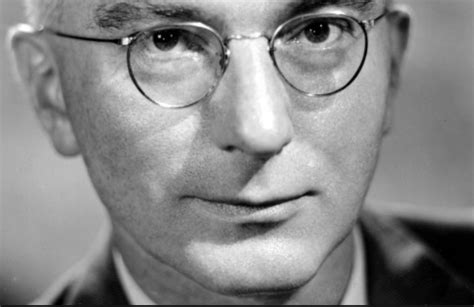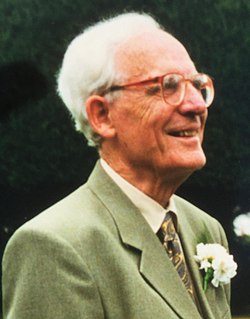A Quote by Eric Voegelin
The problem of an eidos in history, hence, arises only when a Christian transcendental fulfillment becomes immanentized. Such an immanentist hypostasis of the eschaton, however, is a theoretical fallacy.
Quote Topics
Related Quotes
A Christian boy or girl can learn mathematics, for example, from a teacher who is not a Christian; and truth is truth however learned. But while truth is truth however learned, the bearing of truth, the meaning of truth, the purpose of truth, even in the sphere of mathematics, seem entirely different to the Christian from that which they seem to the non-Christian; and that is why a truly Christian education is possible only when Christian conviction underlies not a part but all, of the curriculum of the school.
We've fallen for the devil's lie. His most basic strategy, the same one he employed with Adam and Eve, is to make us believe that sin brings fulfillment. However, in reality, sin robs us of fulfillment. Sin doesn't make life interesting; it makes life empty. Sin doesn't create adventure; it blunts it. Sin doesn't expand life; it shrinks it. Sin's emptiness inevitably leads to boredom. When there's fulfillment, when there's beauty, when we see God as he truly is-an endless reservoir of fascination-boredom becomes impossible.
problematic within post-Reformation dogmatics. Is faith something I `do' to earn God's favour, and, if not, what role does it play? Once we release Paul's justification-language from the burden of having to describe `how someone becomes a Christian', however, this is simply no longer a problem. There is no danger of imagining that Christian faith is after all a surrogate `work', let alone a substitute form of moral righteousness. Faith is the badge of covenant membership, not something someone `performs' as a kind of initiation test.
The more abstractly correct and hence powerful this idea will be, the more impossible remains its complete fulfillment as long as it continues to depend on human beings... If this were not so, the founders of religion could not be counted among the greatest men of this earth... In its workings, even the religion of love is only the weak reflection of the will of its exalted founder; its significance, however, lies in the direction which it attempted to give to a universal human development of culture, ethics, and morality.






































